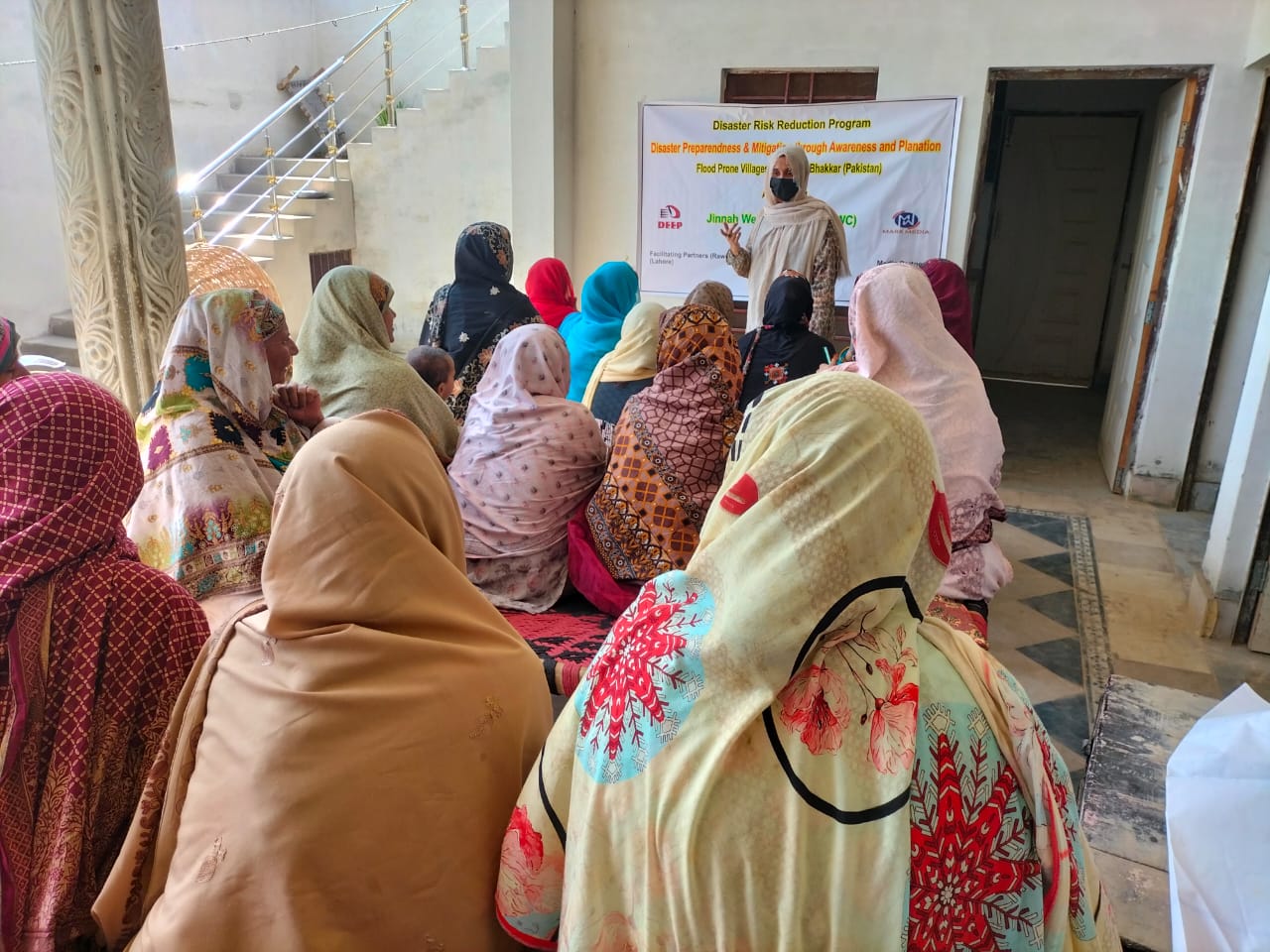News Desk
Bhakkar, August 19, 2024:
In response to the increasing frequency and intensity of natural disasters exacerbated by climate change, the Jinnah Welfare Council (JWC) has launched a Disaster Risk Reduction (DRR) program aimed at mitigating disaster risks through awareness and plantation efforts. The program, conducted on August 18-19 in District Bhakkar, focused on empowering vulnerable communities, particularly women, to better prepare for and respond to natural calamities.
District Bhakkar, located near the Indus River, is highly susceptible to flooding and land erosion, making disaster preparedness a crucial need. Given the district’s vulnerability, JWC’s initiative targeted the Union Council Bet Bogha, where approximately 100 rural women participated in awareness sessions. These sessions emphasized the importance of disaster preparedness and the role of tree plantation in reducing flood risks and enhancing resilience to climate change.
Ms. Sobia, a spokesperson for Jinnah Welfare Council Bhakkar, highlighted the critical need to educate women on disaster risks. “Women are often the most vulnerable during disasters,” she stated. “By raising awareness and promoting tree plantation, we aim to decrease the threat of floods and build stronger, more resilient communities.”
The initiative’s primary objective was to increase community resilience by building capacity to reduce the loss of lives, property, and livelihoods, particularly among women. Participants were encouraged to plant trees, a measure that not only helps mitigate flood risks but also contributes to broader climate change adaptation efforts.
The rural women who took part in the sessions expressed gratitude to JWC for the valuable information and pledged to share their newfound knowledge with others in their communities.
JWC extended thanks to DEEP for their facilitation and guidance, and to Mark Media for their role as media partners in promoting the initiative.


